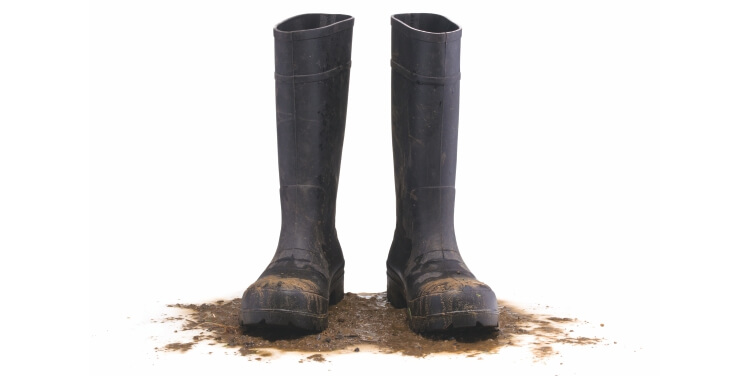“You set example of how celebrities should behave at the airport. No harm at all tugging your own baggage, no chamchas to receive and the icing on the cake! No dark glasses or an airport look. You show confidence with no insecurities. Atta girl!” This is how legendary Bollywood actor Rishi
Kapoor recently lauded Sara Ali Khan’s “down-to-earth” behaviour at the airport. An actor herself, Sara Ali Khan— daughter of Saif Ali Khan and Amrita Singh—was seen lugging her luggage and with no one to receive her at the airport.
The tweet divided the twitterati as usual. While a fair share of fans praised Sara’s attitude, others fumed why Sara was praised for doing “the bare minimum” and for doing what common people do everyday. Some even blamed Rishi Kapoor for promoting “another star kid”.
That social media brings the best and the worst out of people is no secret. But that aside, what made the act famous was the fact that it was committed by an elite, a group whose subjects are seldom found lugging their own baggage. And when they do, it surprises us. We wonder, “Can anything good come out of a spoilt elite brat?”
That Christians should be even more mindful about doing such mundane tasks by themselves is founded on the Christian theology that by proclaiming all human beings equal image-bearers of God, also demolishes the corresponding hierarchy of work
Certainly our ability to perform such tasks is also dictated by several other conditions, most importantly our health, but then there are those for whom tugging their own luggage is not only “uncommon”, but at worst, appears to be “below dignity”. Conversely, having chamchas to hold our briefcases sometimes becomes a status symbol. This is all the more evident in societies that are divided by social structures that claim to organise society on the basis of a hierarchy of people and, corresponding to that, prescribe a hierarchy of work. Once such a system is established, the act itself (for instance, of having others to tug your luggage) can be justified in the garb of providing those on the lower rung of hierarchy employment, or by suggesting that they have been doing it for generations and, therefore, are expert at those professions, or that society divided in such a manner can function best. And when some commit acts that are proscribed by such a system, they do ruffle a few feathers, while several others laud the audacity of those going against the norm.
But has the church been able to break free from such a hierarchical view of work? When I joined the ministry, several of my Christian bosses and colleagues expected, and in some cases even asked, me to carry their luggage. Perhaps, they assumed that such an act was necessary to exorcise pride they assumed I had in my theological education, and once I am humbled, I can be effortlessly towed to work for them. What they did not realise is that while exorcising my pride they were puffing up their own ego. An act as simple as tugging one’s own luggage goes a long way in influencing others to be an industrious, self-responsible and faithful worker. Thankfully, some Christian leaders did just that, and I am grateful for their example.
That Christians should be even more mindful about doing such mundane tasks by themselves is founded on the Christian theology that by proclaiming all human beings equal image-bearers of God, also demolishes the corresponding hierarchy of work.
R Hooykaas, a Dutch historian of science, in his book, Religion and the Rise of Modern Science, observes how Christian theology of work redeemed science, though in popular opinion they are often pitted against one another. According to Hooykaas, though Greek science was instrumental in constructing the edifice of Western science, the Greeks could never break free to revolutionise the world because of the social setting they were placed in. The empirical method that is considered the hallmark of scientific thinking today, was left untouched by Greek giants, including Socrates, Plato and Aristotle, and other less-known Greek philosophers, primarily because physical labour was regarded as lower to contemplation. To experiment would, therefore, be to stoop down to the level of slaves.
The true revolution had already begun more than 1,500 years before Reformation, when the most perfect human being, by taking upon carpentry, a trade not so aspired for even in his own time, had shown the world that “work” had been redeemed from its sinful hierarchy
B V Subbarayappa, an Indian historian of science, echoes Hooykaas’ observation, but in Indian context. For him, though India had potential to become leader in science, one of the decisive reasons for its obstruction is the caste system. Real practitioners of science—“the artisans and craftsmen”—remained trapped within their own castes and professions prescribed by it, while the “intelligentsia” confined themselves to the “matters of mind”. This isolation, both inter-caste and within the castes, ultimately led to stifling of scientific thinking.
Reformation considerably changed this. As individuals were empowered, “hand and head” were synchronised. Blacksmiths, ironsmiths and alchemists, having “practiced” their trades, and having acquired the flexibility to learn from one another by melting away of social boundaries, became generators of knowledge.
But the true revolution had already begun more than 1500 years before Reformation, when the most perfect human being, by taking upon carpentry, a trade not so aspired for even in his own time, had shown the world that “work” had been redeemed from its sinful hierarchy.
So while you ponder upon this, don’t forget to tug your own luggage next time!






